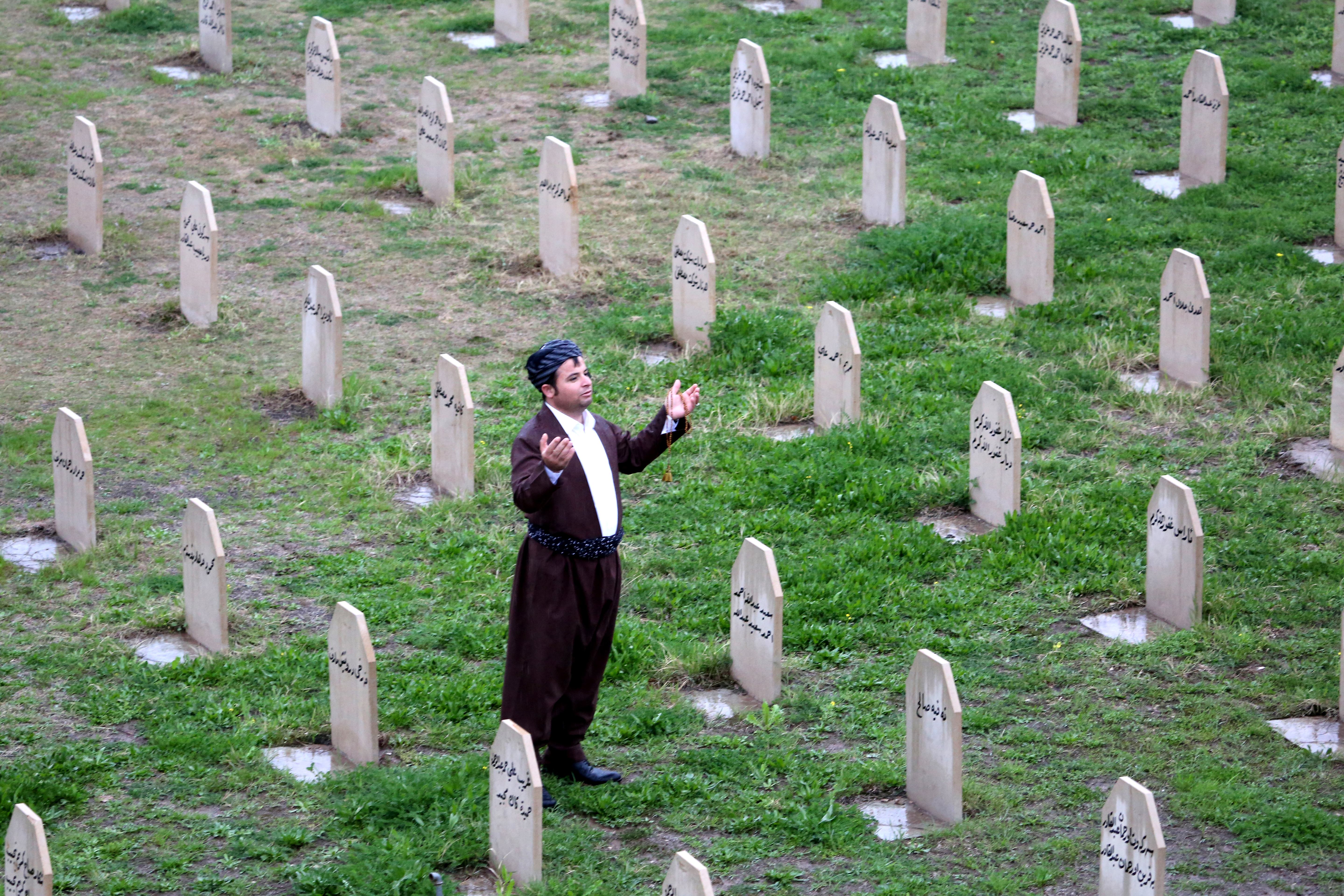Welcome to DU!
The truly grassroots left-of-center political community where regular people, not algorithms, drive the discussions and set the standards.
Join the community:
Create a free account
Support DU (and get rid of ads!):
Become a Star Member
Latest Breaking News
General Discussion
The DU Lounge
All Forums
Issue Forums
Culture Forums
Alliance Forums
Region Forums
Support Forums
Help & Search
Iraq in Therapy The talking cure comes to Kurdistan

August 19, 2014
Last Tuesday, a few days after Sunni militants with the Islamic State of Iraq and the Levant (ISIL) routed the Kurdish peshmerga and pushed into northern Iraq, slaughtering and scattering Christians and Yazidis and prompting the United States to launch air strikes against the country for the first time since the end of the Iraq War in 2011, I emailed a friend in Kurdistan to see how he was doing. “Things are pretty normal,” he replied. Some Christians and Yazidis—as well as Kurds from Erbil, the capital city, whose U.S. Consulate (and, presumably, oil companies) Barack Obama had vowed to protect—had sought refuge in Sulaymaniyah, the eastern city where he lives, but otherwise nothing had changed. A friend in Erbil told me the same thing. When I challenged him he grew annoyed. “It’s up to you whether you believe it or not, but until now life here is pretty normal,” he wrote. “Yes, some oil companies evacuated their staff,” he continued casually, as if to say, so what?
Getting bad news about present-day Kurdistan can be like pulling teeth. Having lived through decades of persecution under Saddam Hussein, including the Al Anfal chemical weapons attacks towards the end of the Iran–Iraq War, which many consider genocide, most Kurds are loath to complain about lesser struggles. Today the region enjoys relative security, and, thanks to its vast oil reserves, the economy is booming. Erbil is a rash of skyscrapers, schools, and cultural institutions, all symbols of Kurdish optimism about the future. As Thomas Friedman put it in a column earlier this summer, “Kurdistan remains the unsung success story of the Iraq war . . . an island of decency in a still-roiling sea.”
Such breathless optimism has become commonplace in the U.S. media in the years since the American invasion, and many Kurds are happy to corroborate the success-story narrative. Even those who feel left out of the economic boom or oppose the current government acknowledge the progress Kurdistan has made in recent years, usually with pride. Over the past few months, as the poorly organized Iraqi army wilted in the face of the ISIL onslaught, the peshmerga have been heralded in the Western press for their resilience, helping to evacuate the Yazidis encircled by ISIL fighters in the Sinjar mountain range and retaking territory that had fallen to the extremists. No doubt relieved to have found a stable U.S. ally in the region capable of effectively combating the ISIL advance, it is no surprise to see American liberals and conservatives alike lining up to praise the achievements of Kurdish society and calling on the U.S. government to support the Kurds’ aspirations for independent statehood.
The reality of Iraqi Kurdistan, of course, is more complicated than these accounts let on. The Kurdish people face troubles that are not easily addressed by promises of oil wealth or what is often described as its “largely democratic” government. They have suffered decades of trauma, which did not end with Saddam’s execution. Nor was the trauma inflicted by the central government alone. The violence meted out by the Kurdish authorities, often a result of political divisions in the region, is also underreported, in part because so many Kurds are reluctant to talk about it.
http://harpers.org/blog/2014/08/iraq-in-therapy/
InfoView thread info, including edit history
TrashPut this thread in your Trash Can (My DU » Trash Can)
BookmarkAdd this thread to your Bookmarks (My DU » Bookmarks)
0 replies, 964 views
ShareGet links to this post and/or share on social media
AlertAlert this post for a rule violation
PowersThere are no powers you can use on this post
EditCannot edit other people's posts
ReplyReply to this post
EditCannot edit other people's posts
Rec (3)
ReplyReply to this post